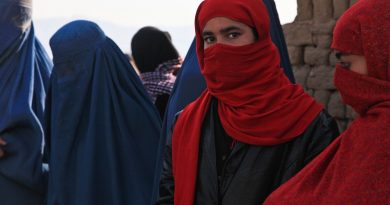Denmark Revokes Residency of Syrian Refugees
Jasmine Ortega
Staff Writer
Denmark has recently come under international criticism for its decision to revoke Syrian refugees’ residency permits. It is the first European country to do so. This is especially surprising given that Denmark was the first country to sign the United Nations Refugee Convention in 1952, according to VICE.
NPR explains that this decision was preceded by a 2019 Danish report claiming that the security situation in some parts of Syria has “improved significantly.” Yet, according to The Guardian, many international human rights organizations have criticized this analysis, stating that the security situation has only appeared to improve because the repressive regime under Syrian President Bashar al-Assad has been able to retain control of the area.
“The very reason the general level of violence in greater Damascus has fallen is that it has come under the full control of one of the most [violent] and notoriously repressive regimes,” said Villads Zahle, a communications officer at the European Council for Refugees and Exiles, an umbrella organization that protects the rights of refugees in Europe, according to VICE. “It makes no sense that the authorities would send back Syrian refugees to an area controlled by a government they don’t recognize and refuse to cooperate with due to their human rights abuses.”
Since Denmark does not recognize Assad’s government, it cannot deport refugees to Syria. Therefore, most refugees have been sent to “detention centers” where residents can choose to either live indefinitely, voluntarily go back to Syria, or “go underground” to another European country, NPR reports.
As of now, this policy only affects people from certain areas of Syria who were initially granted asylum because they were escaping civil war, according to The Associated Press. The policy does not apply to individuals who can point to a specific threat to their lives, such as men who would potentially face conscription into Assad’s army.
The policy’s exceptions mean that it has disproportionately affected women and children. Single women are typically sent to the Kaershovedgaard deportation center, where even simple activities, such as cooking, are prohibited. Many human rights activists have described the centers as prisons, with the only difference being that residents can go out in the daytime, the Associated Press furthers.
This policy has been criticized as demonstrating the country’s increasingly racist and right-leaning stance on immigration. According to The Washington Post, Denmark has also applied this policy to Somali refugees, many of whom have since been forced “underground.”
The thousands of Syrian refugees currently residing in Denmark had originally been attracted to the country for its historically welcoming stance on refugees. Yet according to Michala Bendixen, head of the Danish refugee advocacy group Refugees Welcome, this is precisely the reputation that the government is hoping to get rid of.
“We have a new expression now among migrant researchers called ‘negative nation branding,’” she explained to NPR. Bendixen added that the government is attempting to create a bad narrative around the life of an asylum seeker in Denmark, hoping to discourage others. Denmark is trying to create the impression among refugee seekers that “you should never feel safe or secure about your future here, because even if you are among the lucky ones who are granted asylum, you will be kicked out sooner or later.”
In a maneuver to capture the populist vote from the conservative Danish People’s Party, Danish Prime Minister Mette Frederiksen was able to secure a victory for the Social Democrats by maintaining a staunch anti-immigration policy, The Washington Post reports.
According to Al Jazeera, Denmark has stated a goal of attracting “zero asylum seekers.” It has also instituted a policy which offers special grants for Syrian returnees, though the offer has only been accepted by 137 Syrians.
Courtesy of Flickr


